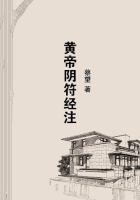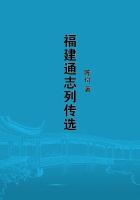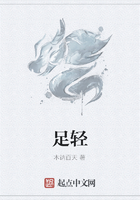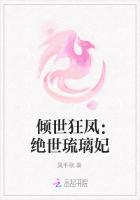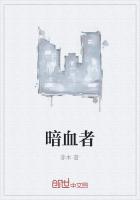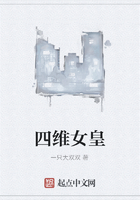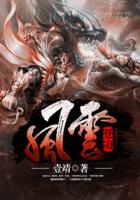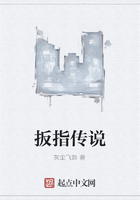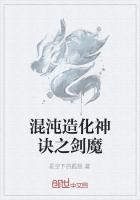1
SINCE virtue is concerned with passions and actions, and on voluntary passions and actions praise and blame are bestowed, on those that are involuntary pardon, and sometimes also pity, to distinguish the voluntary and the involuntary is presumably necessary for those who are studying the nature of virtue, and useful also for legislators with a view to the assigning both of honours and of punishments. Those things, then, are thought-involuntary, which take place under compulsion or owing to ignorance; and that is compulsory of which the moving principle is outside, being a principle in which nothing is contributed by the person who is acting or is feeling the passion, e.g. if he were to be carried somewhere by a wind, or by men who had him in their power.
But with regard to the things that are done from fear of greater evils or for some noble object (e.g. if a tyrant were to order one to do something base, having one's parents and children in his power, and if one did the action they were to be saved, but otherwise would be put to death), it may be debated whether such actions are involuntary or voluntary. Something of the sort happens also with regard to the throwing of goods overboard in a storm; for in the abstract no one throws goods away voluntarily, but on condition of its securing the safety of himself and his crew any sensible man does so. Such actions, then, are mixed, but are more like voluntary actions; for they are worthy of choice at the time when they are done, and the end of an action is relative to the occasion. Both the terms, then, 'voluntary' and 'involuntary', must be used with reference to the moment of action. Now the man acts voluntarily; for the principle that moves the instrumental parts of the body in such actions is in him, and the things of which the moving principle is in a man himself are in his power to do or not to do. Such actions, therefore, are voluntary, but in the abstract perhaps involuntary; for no one would choose any such act in itself.
For such actions men are sometimes even praised, when they endure something base or painful in return for great and noble objects gained; in the opposite case they are blamed, since to endure the greatest indignities for no noble end or for a trifling end is the mark of an inferior person. On some actions praise indeed is not bestowed, but pardon is, when one does what he ought not under pressure which overstrains human nature and which no one could withstand. But some acts, perhaps, we cannot be forced to do, but ought rather to face death after the most fearful sufferings; for the things that 'forced' Euripides Alcmaeon to slay his mother seem absurd. It is difficult sometimes to determine what should be chosen at what cost, and what should be endured in return for what gain, and yet more difficult to abide by our decisions; for as a rule what is expected is painful, and what we are forced to do is base, whence praise and blame are bestowed on those who have been compelled or have not.
What sort of acts, then, should be called compulsory? We answer that without qualification actions are so when the cause is in the external circumstances and the agent contributes nothing. But the things that in themselves are involuntary, but now and in return for these gains are worthy of choice, and whose moving principle is in the agent, are in themselves involuntary, but now and in return for these gains voluntary. They are more like voluntary acts; for actions are in the class of particulars, and the particular acts here are voluntary. What sort of things are to be chosen, and in return for what, it is not easy to state; for there are many differences in the particular cases.
But if some one were to say that pleasant and noble objects have a compelling power, forcing us from without, all acts would be for him compulsory; for it is for these objects that all men do everything they do. And those who act under compulsion and unwillingly act with pain, but those who do acts for their pleasantness and nobility do them with pleasure; it is absurd to make external circumstances responsible, and not oneself, as being easily caught by such attractions, and to make oneself responsible for noble acts but the pleasant objects responsible for base acts. The compulsory, then, seems to be that whose moving principle is outside, the person compelled contributing nothing.
Everything that is done by reason of ignorance is not voluntary;it is only what produces pain and repentance that is involuntary.
For the man who has done something owing to ignorance, and feels not the least vexation at his action, has not acted voluntarily, since he did not know what he was doing, nor yet involuntarily, since he is not pained. Of people, then, who act by reason of ignorance he who repents is thought an involuntary agent, and the man who does not repent may, since he is different, be called a not voluntary agent; for, since he differs from the other, it is better that he should have a name of his own.
Acting by reason of ignorance seems also to be different from acting in ignorance; for the man who is drunk or in a rage is thought to act as a result not of ignorance but of one of the causes mentioned, yet not knowingly but in ignorance.
Now every wicked man is ignorant of what he ought to do and what he ought to abstain from, and it is by reason of error of this kind that men become unjust and in general bad; but the term 'involuntary' tends to be used not if a man is ignorant of what is to his advantage- for it is not mistaken purpose that causes involuntary action (it leads rather to wickedness), nor ignorance of the universal (for that men are blamed), but ignorance of particulars, i.e. of the circumstances of the action and the objects with which it is concerned. For it is on these that both pity and pardon depend, since the person who is ignorant of any of these acts involuntarily.


